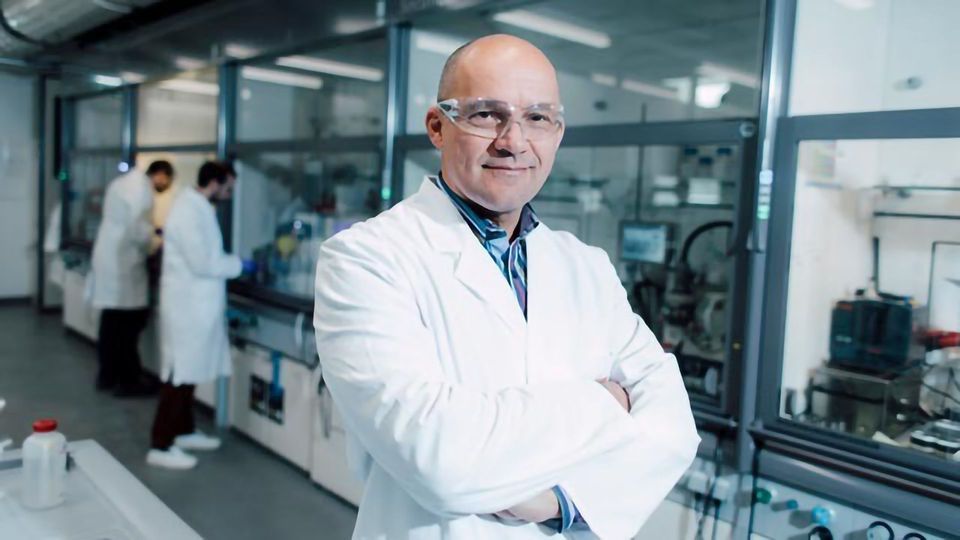Developing Scalable Flow Chemistry for a Variety of Chemical Transformations

Complete the form below to unlock access to ALL audio articles.
We recently spoke to Oliver Kappe to learn more about the focus of his laboratory. Kappe highlights the key properties of continuous-flow microreactors that make them well-suited to preparing pharmaceuticals, and also touches on the topic of his upcoming talk at the 2019 Flow Chemistry and Continuous Processing Conference.
Laura Lansdowne (LL): Can you tell us a bit about your background and how you came to be working in this field?
Oliver Kappe (OK): I am a trained synthetic organic chemist with a background in physical organic chemistry as well. In the late 1990’s we became deeply involved in microwave chemistry. Although microwave synthesis is very successful at a laboratory scale, typically carried out in 10 mL sealed glass tubes, it cannot be easily implemented on production scale in batch, owing to penetration depth issues. So, it occurred to us that one can easily convert these sealed tube experiments to a flow system, i.e. a stainless steel capillary connected to a back pressure regulator and a pump. We subsequently termed this the “microwave-to-flow” paradigm and today use small scale microwave batch experiments to optimize our high-temperature/pressure flow experiments. This is how we original started in flow chemistry around 2008.
LL: What is the main research focus of The Kappe Laboratory?
OK: Today the whole group is doing flow chemistry in one way or another. In particular, since the implementation of the “Center for Continuous Flow Synthesis and Processing” in Graz there is a strong focus to develop scalable flow chemistry protocols for a variety of different chemical transformations, not only related to pharmaceuticals, but that is clearly our main focus. As far as technology is concerned, we work a lot with gases in multiphase gas-liquid systems, do flow photo- and electrochemistry, and make our own flow reactors out of stainless steel using 3D printing. Recently, implementing process analytical technology (PAT) tools and process modeling –understanding has become more important in the group. In many of these projects we collaborate with industrial partners that are interested in subsequently scaling these technologies.
LL: What role do flow chemistry systems play in sustainable chemistry?
OK: Although this is not highlighted that often in papers, flow chemistry – in combination with process intensification technologies – can make chemical processes a lot more sustainable. Less solvent, smaller footprint of plants and reactors, avoiding cryogenic conditions, and use of very atom economic (but hazardous) reagents to reduce the number of steps in synthesis are just a few of the advantages that continuous processing can bring, in particular when several steps are linked together and intermediates do not need to be purified.
LL: What characteristic properties of continuous-flow microreactors make them well-suited to preparing pharmaceuticals?
OK: The US Food and Drug Administration (FDA) is a strong supporter of continuous processing for several different reasons. One of them is the relatively easy implementation of in-line process control into the system. Obviously, product quality and the robustness of the process are major concerns when dealing with pharmaceuticals. Given the much better performance of microreactors with respect to heat and mass transfer compared to large batch vessels, it is obvious that control over yields and selectivities will be higher and it is thus easier to implement control strategies that ensure in-spec production of the desired products.
LL: Could you provide us with an overview of your upcoming keynote presentation “Scaling Hazardous Reactions in Flow”?
OK: In my talk I will focus on executing hazardous chemistry in flow which is impossible to do in batch. Examples will involve a number of “forbidden” and “forgotten” chemistries and reagents that can lead to valuable products. In particular, I will focus on the concept of “on-site, on-demand” generation and consumption of these reagents where safety issues are minimized.
C. Oliver Kappe was speaking to Laura Elizabeth Lansdowne, Science Writer for Technology Networks.


